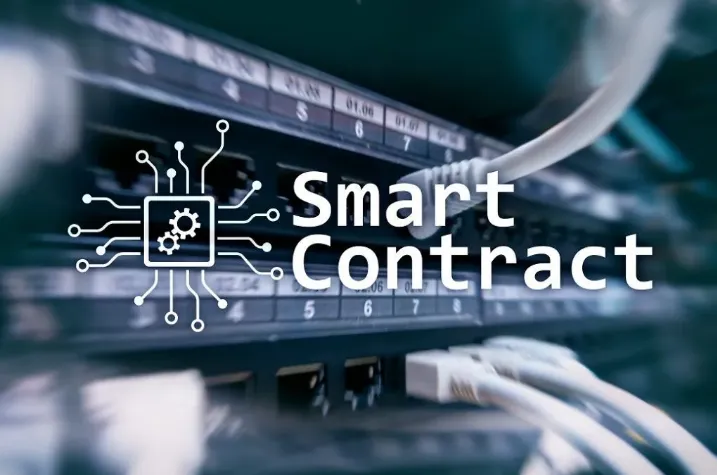A digital agreement between two or more parties is termed as a smart agreement, that keeps terms and conditions and the consequences if one breaks it. Computers enforce these agreements by executing the code, verifying what has occurred, and implementing the pre-established regulations.

Smart contract development enhances the security, transparency, and auditability of transactions by eliminating the need for third-party intervention to modify the contract for their own interests. Additionally, the decentralized nature of the technology ensures the elimination of fraud and external interference in transactions.
In what ways can your business benefit from Smart Contract development implementation?
Firstly, smart contracts can streamline transactions between your company and clients by automating various processes, from financial transactions to more complex actions such as incorporating delivery or shipment information into the contract for automatic execution upon receipt of goods.
Secondly, these contracts are highly secure because they cannot be changed. Even in the event of a system breach, the terms and conditions of the agreement remain unchanged.
Finally, smart contract technology saves time by eliminating the need to pay third parties for their services. Additionally, since the contracts are executed automatically by computer code, there are no delays in the process.
The key advantages of smart contracts include:
- Decentralization: Smart contract developments do not require intermediaries, which makes them fully autonomous. A smart contract developer would include all the essential parameters on which the contract will function and execute, making it easier for businesses to deposit cryptocurrency securely. The funds won’t be released until predefined conditions are met.
- Transparency: As smart contracts are stored on the blockchain, all parties involved in the contract can view the transaction records, eliminating the possibility of any ownership. These records are also kept in an unchangeable digital ledger, preventing anyone from manipulating them for personal gain.
- Efficiency: Smart contracts are executed automatically, saving time and resources. This results in faster business processes and improved efficiency.
- Cost-effectiveness: Smart contract development reduces the cost of transactions, especially cross-border ones. There is no need to pay fees to multiple parties involved in the transaction process. One only has to pay the gas fees, and nothing else.
The Future of Smart Contract development in Business: Exploring Potential Technological Advancements
Smart contracts are already playing a significant role in addressing modern business needs and real-world scenarios. However, it’s important to understand what the future holds for this technology. The compatibility of smart contracts with cutting-edge achievements is a clear reflection of the future of technology. As a result, smart contracts have become actual beneficiaries and enablers of various technological breakthroughs. Here are some potential technological advancements that could shape the future of smart contracts:
- Internet of Things (IoT)
Smart contracts rely on intermediaries like Oracle to derive information about the outside world. However, this technology is not perfect since the data comes from data feeds and reported states and objects. The IoT operates differently since IoT devices gather real-time data directly from the environment through sensors embedded in various systems. This direct access to real-time data could revolutionize the way smart contract development functions in the future.
- Edge Computing
Efficient data processing is crucial for the next development prospects of smart contracts. Extracting large amounts of information from the blockchain is both a privilege and a burden for any system, including smart contracts. On the one hand, smart contracts rely on provided data for execution. On the other hand, the storage and processing of massive blockchain data necessitate significant energy, time investment, and financial resources. Edge computing, which processes data closer to the source, could improve the speed and efficiency of data processing for smart contracts.
- Decentralized application
When we think of blockchain technology and smart contract development, we often associate them with decentralized applications (Dapps). What sets Dapps apart from traditional applications is their location on blockchain networks, particularly Ethereum. Dapps have a user-friendly front-end like traditional apps, and smart contracts act as the back-end.
Smart contracts are self-executing digital contracts that enable parties to enter into digital agreements that operate automatically without the need for human action. Smart contracts streamline the complexities of business transactions, resulting in a secure and dependable operational environment.
While smart contracts are innovative tools, their future relies heavily on the legal and regulatory landscape surrounding digital assets. Transparency and traceability are crucial in nearly every major industry, creating a significant avenue for expansion. However, managing legal documents requires a supporting legal structure, and regulatory recognition is necessary for smart contracts to reach their full potential.


All Comments